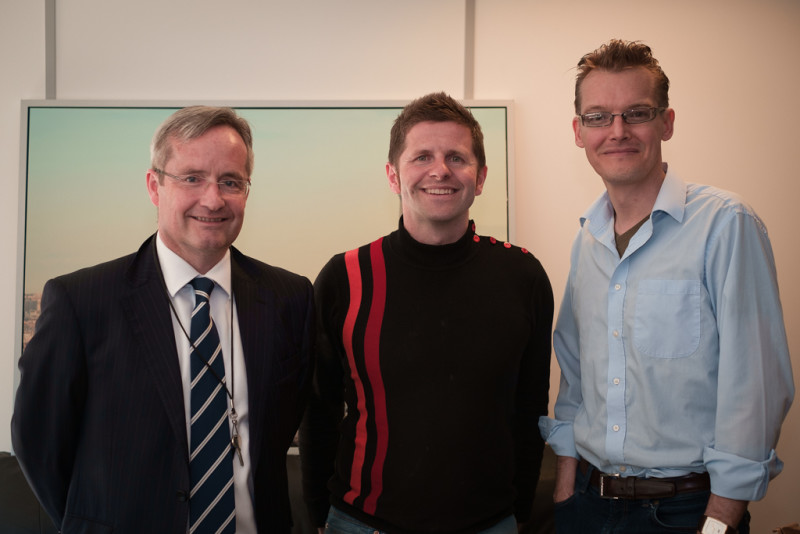Driving virtual interactions with new science park hub
A new virtual/augmented reality hub to drive technology has been launched by two PhD students at Liverpool Science Park. This innovative technology sector is projected to be worth $150 billion by 2020.

University of Liverpool PhD students, Rob Black and Michael Verity, have set up REAL SPACE LTD to support micro SMEs, creative freelancers, entrepreneurs and technology start-ups in the virtual reality (VR) and augmented reality (AR) space. REALSPACE also supports VR/AR projects with the University’s Centre for Architecture and Visual Arts (CAVA), as well as the Virtual Engineering Centre.
Set to be one the biggest growth technologies in the next decade, VR simulates an environment, real or imagined, which can be interacted with by a person wearing a head-mounted display. AR is the process of superimposing digitally rendered images onto our real-world surroundings, giving a sense of an illusion or mixed reality.
Initially a computer scientist at IBM, followed by an academic career in visual perception, Rob has extensive experience in the 3D film industry. He is nearing completion on a joint-funded Engineering and Physical Sciences Research Council (EPSRC) collaboration focusing on stereoscopic 3D technology with Sony Computer Entertainment Europe’s Immersive Technology Group.
Michael was a founding member of the S3D Centre, a research centre specialising in stereo 3D film and VR, in Vancouver Canada. For the last five years he has been working on a multimillion-dollar project to develop a professional 3D cinema camera, called the TITAN. Recently he has started a practice-based PhD on the use of VR and AR within the new hybridised space of interactive urban advertising. This CAVA PhD is in collaboration with McCann Manchester, the international advertising agency, and the University of Liverpool’s Virtual Engineering Centre.
Michael said:
“This year we expect VR and AR technology to become mainstream with manufacturers like Oculus and HTC launching the first Rift and Vive headsets to customers at the end of March, followed by PlayStation VR in October and Microsoft and Metavision later in the year with the HoloLens and Meta 2, respectively. VR and AR also presents real opportunities in so many sectors such as enterprise, gaming, medical, engineering, architecture, design and computing and this growth is set to continue. We want the hub to act as a magnet to attract any businesses in the VR/AR community to come and learn, collaborate and accelerate their technologies.”
The hub will feature dedicated ‘Reality Pods’ equipped with HTC Vive headsets for people to experience professional, room-scale virtual reality. Through pre-existing connections with local businesses, collaborations are already under way with local 360 filming and VR companies. There will also be a ‘holodeck’ wall which will feature edge to edge stereoscopic 3D projection, plus Ultra HD 3D screens.
As well as being at the cutting edge of VR and AR, REALSPACE will provide a home to more conventional photographers and film makers who are experimenting with techniques such as focus stacked macro or stereoscopic 3D. It will include high-end camera systems such as the Nokia Ozo, and Titan, plus consumer technology such as 360Fly, Kodak PixPro360 4K and GoPro 360 rigs.
This technology will enable the creation and enjoyment of world class digital assets and experiences in virtual and augmented environments. There are full Adobe Creative Suite editing facilities, 3D printing, 3D scanning and large format printing facilities available from day one.
Chris Musson, chief executive of Liverpool Science Park said:
“The hub will be a fantastic place for bright companies in this sector to engage and collaborate on VR and AR technology. It just shows how powerful the combination of university research and business can be to create and develop technologies which have the potential to be game changing across the UK and the world.”
